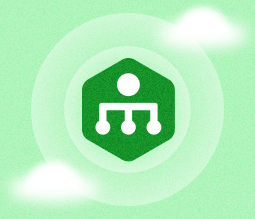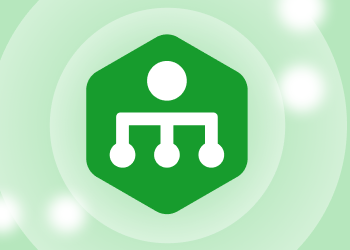We’re excited to announce that, starting from version 1.4 MSP360 RMM has become even more powerful, with support for macOS, scheduled RMM tasks, a PowerShell Script Library, and an RMM alerts history page.
With the addition of all of these features designed to make IT administrators' work easier, MSP360 RMM goes one step further.
RMM for macOS (beta)
MSP360 is excited to introduce the long-awaited and much-requested support for macOS endpoints. Currently, we support three macOS versions in MSP360 RMM 1.4: Big Sur 11.0, Monterey 12.0, and Catalina 10.15.
MSP360 RMM for macOS is currently in beta testing; only monitoring and alerting mode is available.
From the Remote Management page, you can monitor the performance of macOS computers, such as disk space, CPU, and memory consumption. Colored indicators give you a clear idea of the health of your devices.

Detailed information regarding the health and performance of macOS computers is provided in the following sections:
- General
- Computer Info
- Task Manager
- Installed Software
- Patch Management
- HDD/SDD Info
- Printers
- Diagnostic Crash Reports
Scheduled Tasks
MSP360 RMM version 1.4 introduces scheduled RMM tasks, designed to simplify and increase the efficiency of IT administrators' work. Tasks are recurring group actions that can be executed multiple times on a group of selected computers with the set-and-forget principle.
Click the New Group Action Task in the RMM Group Actions menu to create a task.

You can schedule the following tasks:
- Run a PowerShell script
- Install Windows updates
- Install/uninstall software
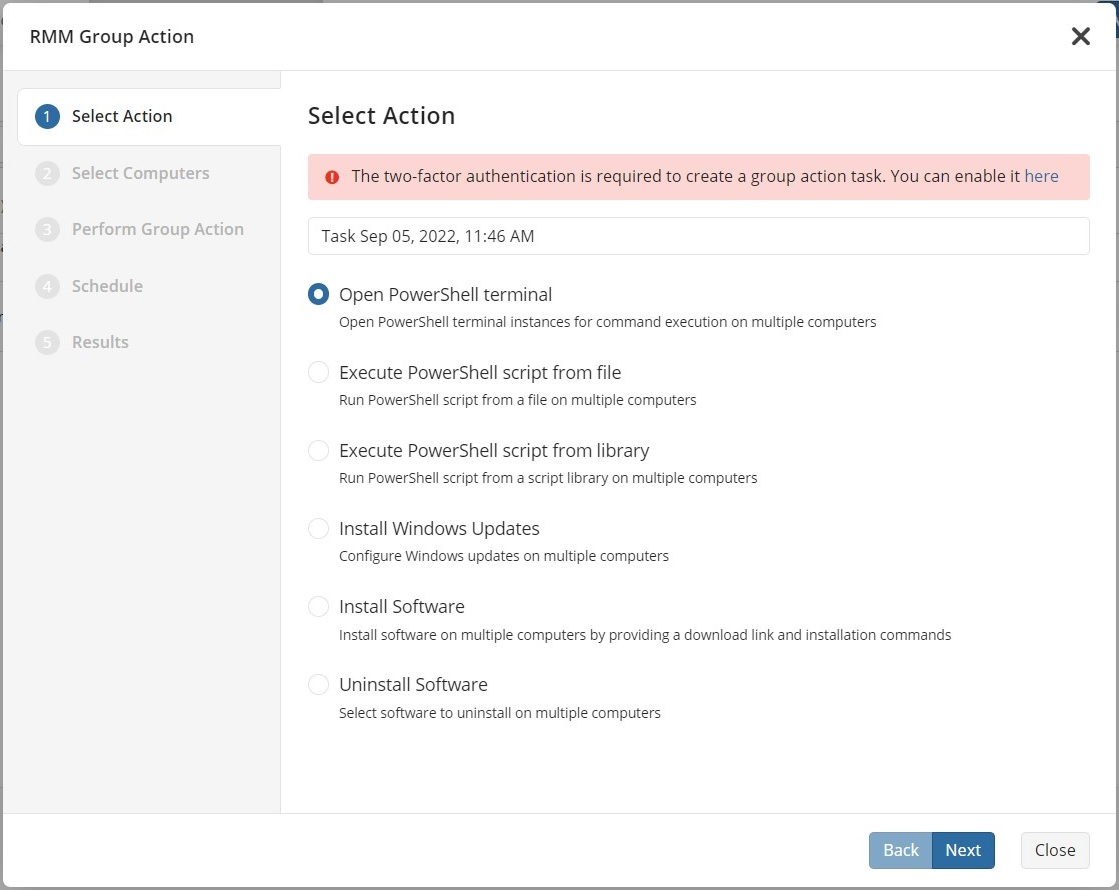
RMM group actions can now have three types of execution:
- No Schedule (run manually)
Creates a group action that will not be executed immediately, but needs to be run manually.
- Run Once
This creates a group action that is executed immediately on all online computers selected. If a computer is offline at the time of the task execution, it is assigned a pending state and the action is executed as soon as the computer comes online.
- Specific Date
Allows you to create a recurring task that starts according to a specific schedule. The system executes the task based on the local time at the endpoint.

From now on, you don't have to wait until your computer is online to manually execute a PowerShell script, run a Windows update, or install/uninstall a program. All you have to do is create a task in the RMM Group Actions wizard and the system will take care of the rest.
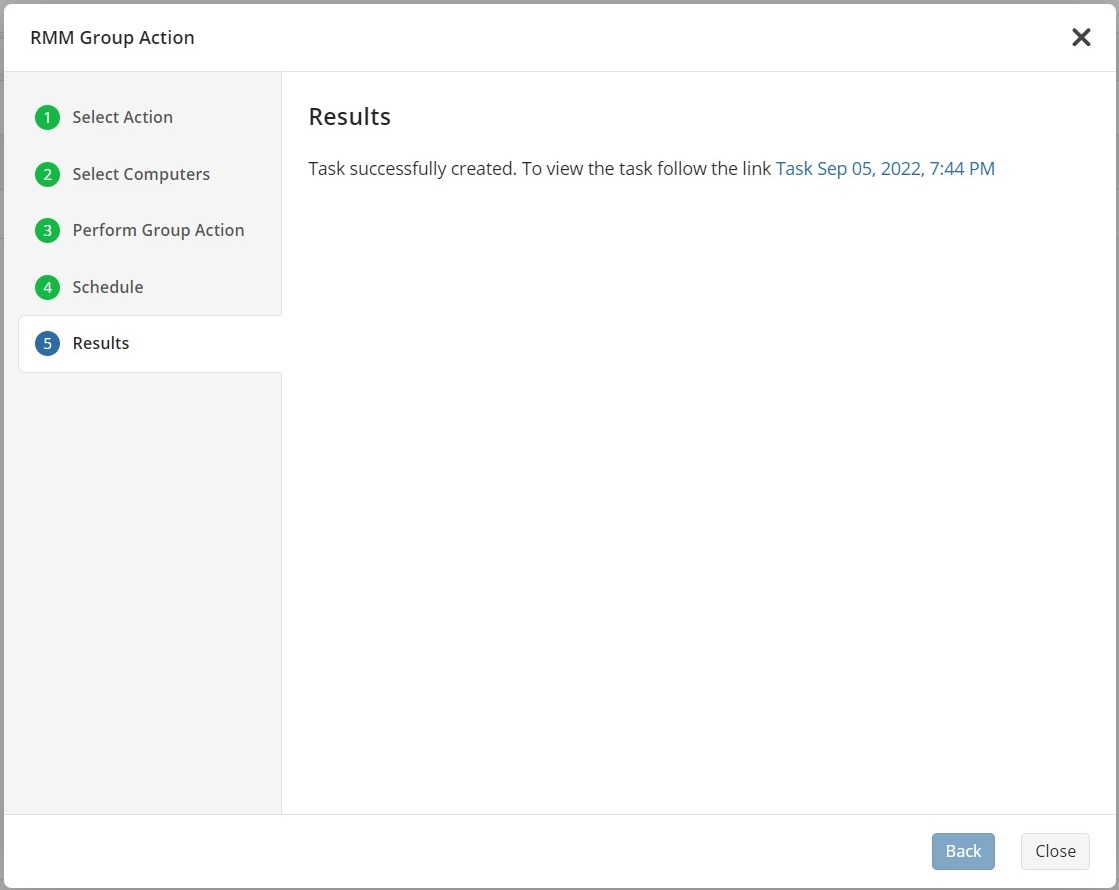
Task Management
Once you have scheduled a task, you can manage it from the Group Action Tasks page. Here you can view all scheduled tasks, together with their type, status, and who created them. You can also delete or run a task right now if your plans have changed.
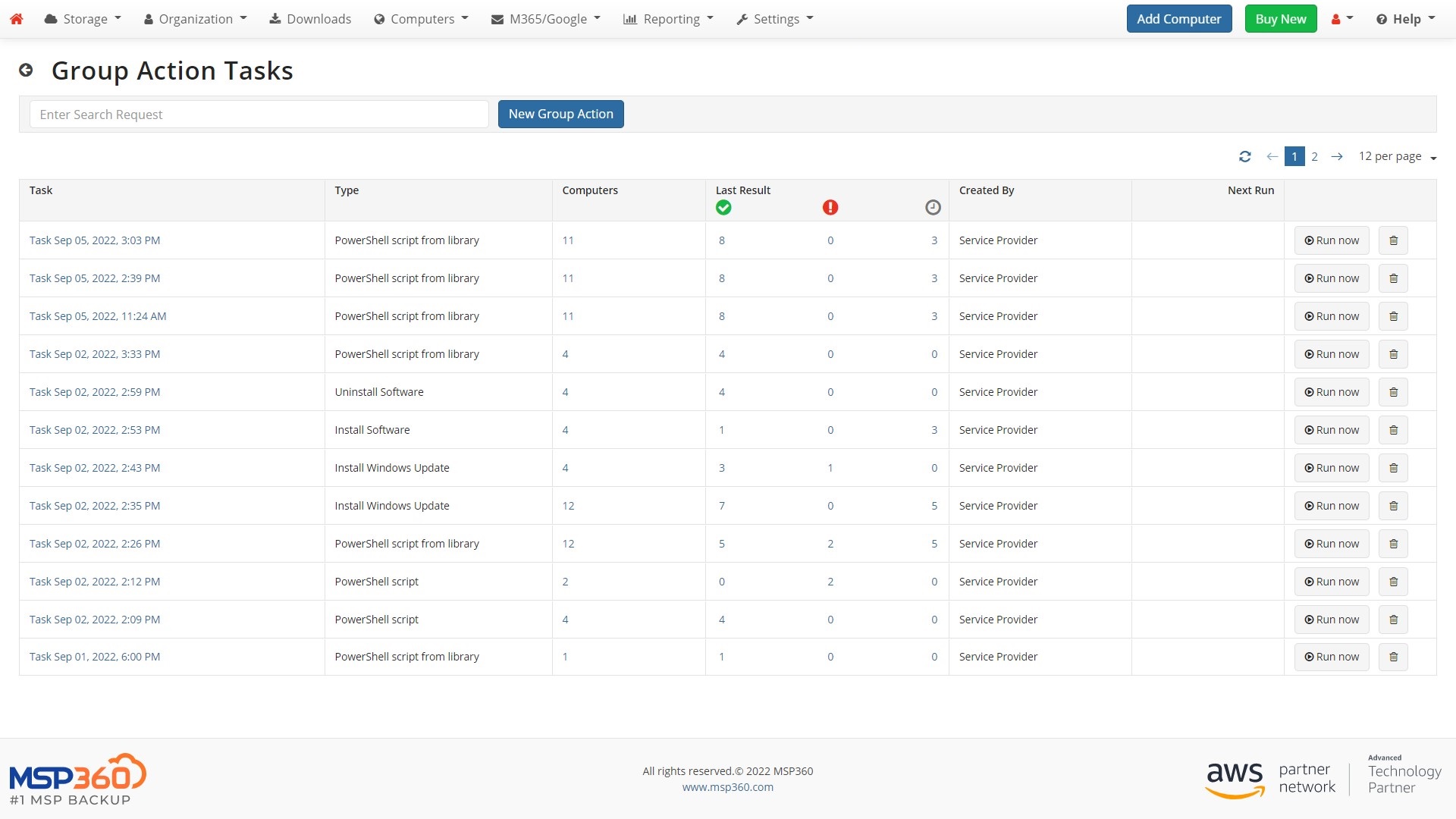
When you click on a task, a window appears with a report showing which computers the task has already been completed on, and which have yet to execute it. You can also download this report.
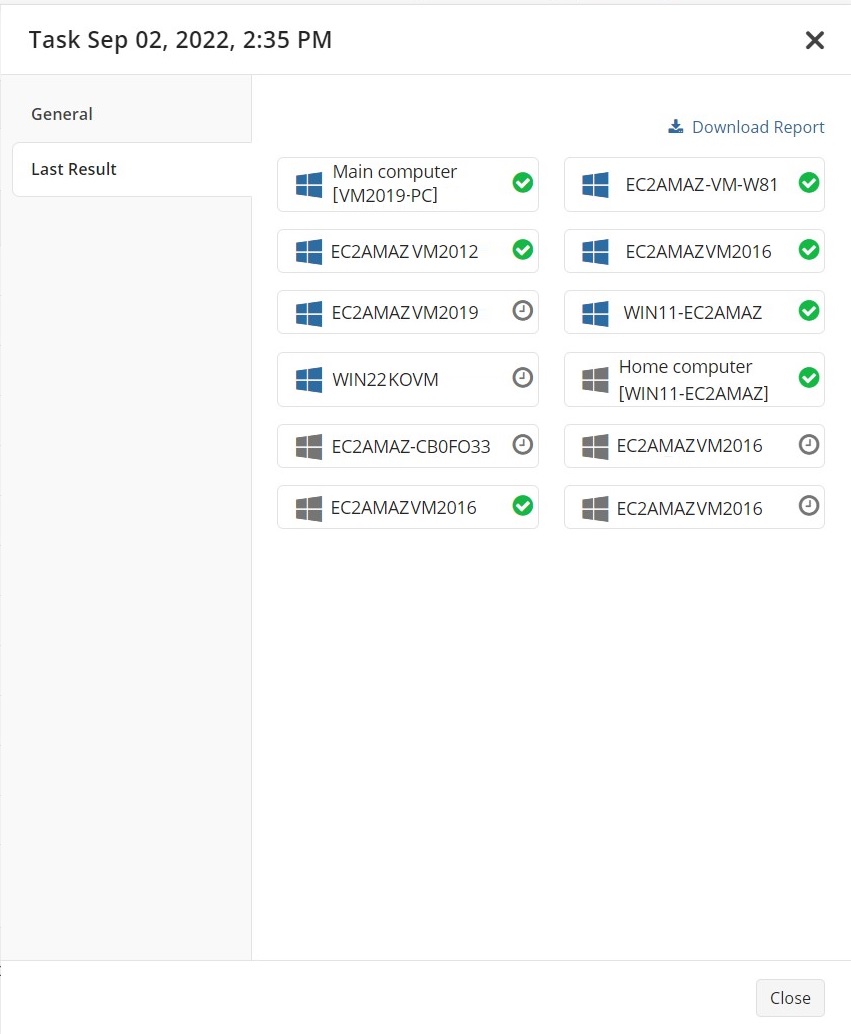
Script Library
Another equally important update in version 1.4 is a Script Library. On this page, you can either use ready-made scripts from the library or add your own script to the script repository.
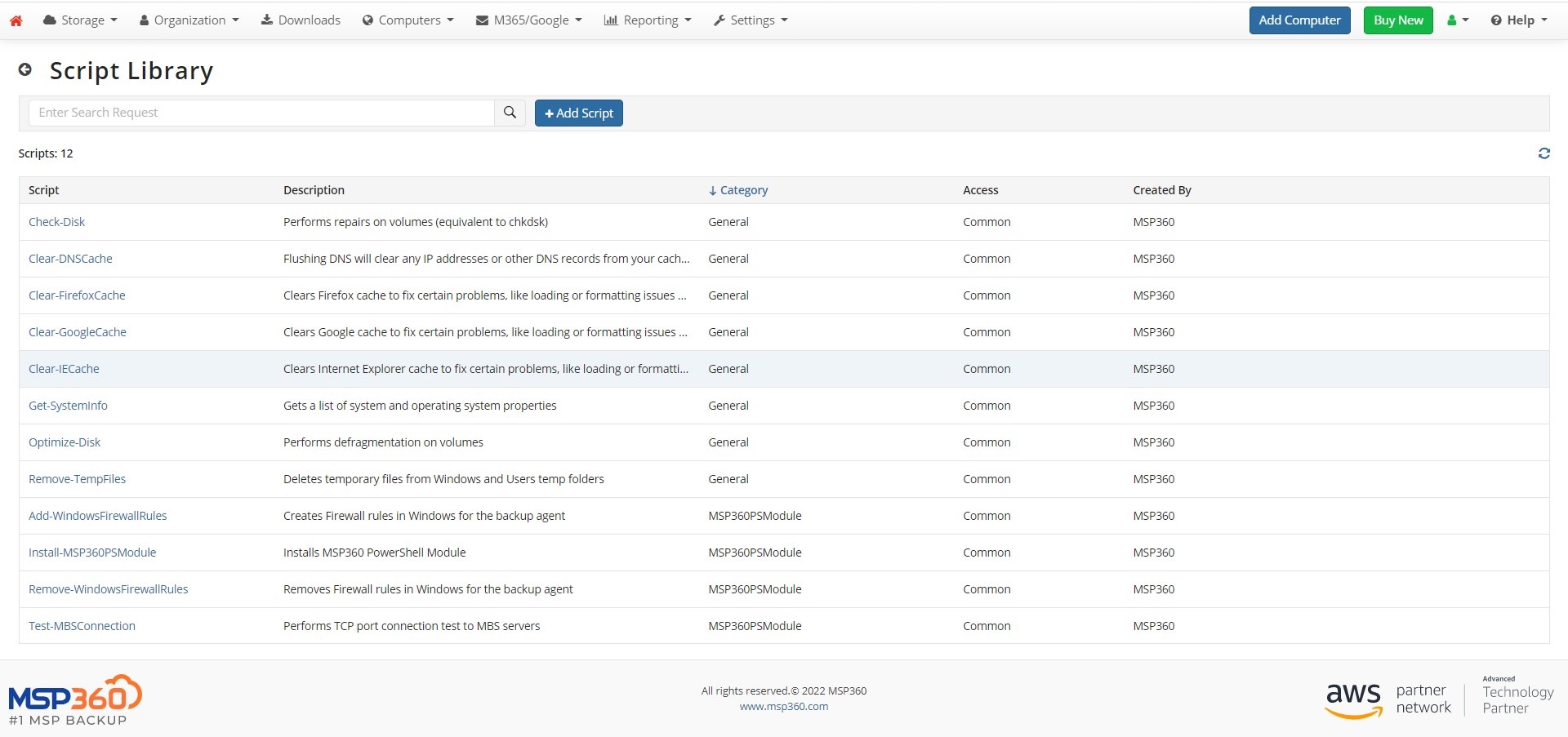
Overall, the following script categories are available:
- General. MSP360 has prepared and added a number of common PowerShell scripts to the “General” category to simplify Windows maintenance tasks. Read-only access to these scripts is granted to anyone who has access to the Backup Service account.
- Private. It is common for IT engineers to perform the same daily routine tasks in a particular way and to take on a variety of particular tasks during their workday. Administrators can create their own script repository in the “Private” category, so they can use it in specific scenarios and for specific purposes.
- Public. By sharing scripts for daily IT tasks between administrators, the “Public” category makes co-working within an administrative console even more efficient. Each administrator with access to the Backup Service account can view and use the scripts in this category.
RMM Alerts History page
Now all the notifications that you receive are saved and can be viewed at any time on the RMM Alerts History page. As in the notifications themselves, the alert type, the status, the message, the computer, the company to which it belongs, and the date are displayed.
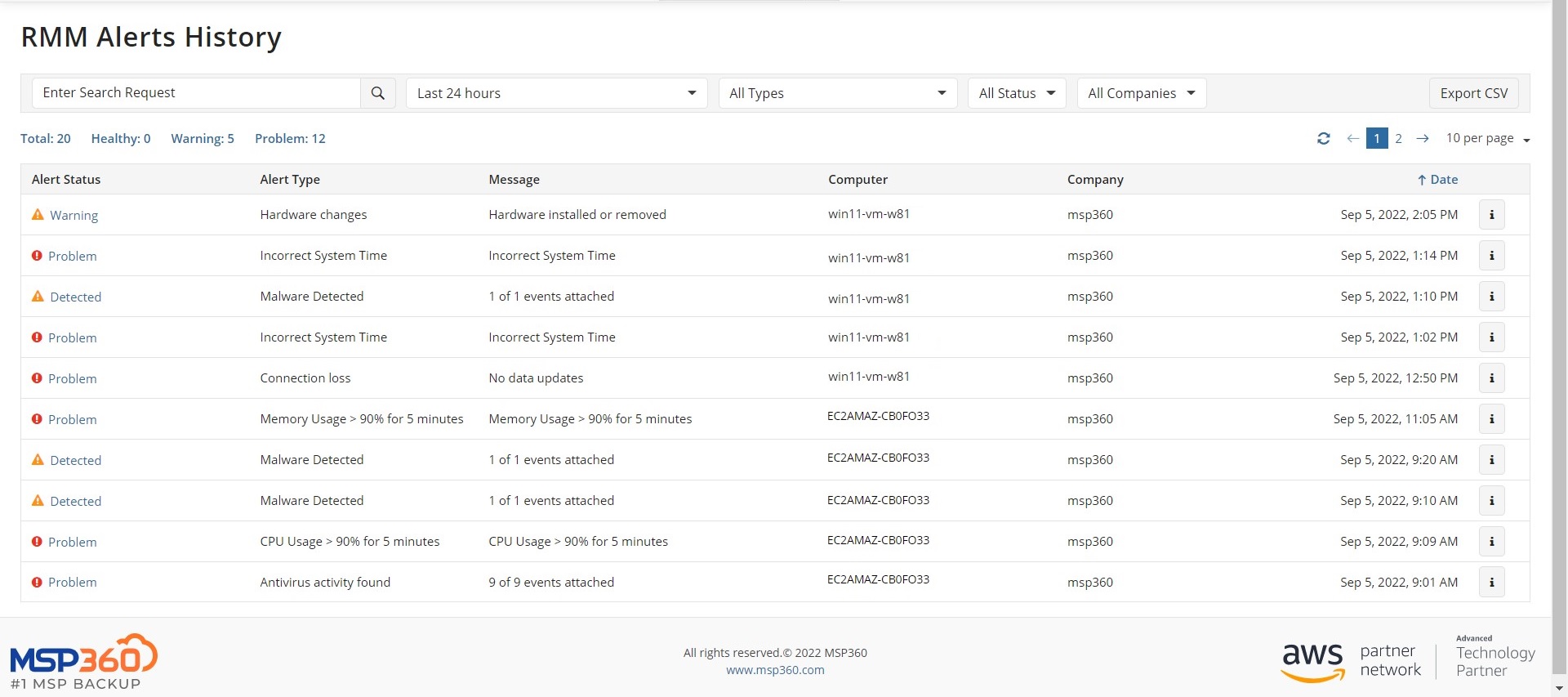
Other Changes
- Remote computer geo location in RMM side panel
- PowerShell improvements:
- Interactive input
- Bug fixes
3. UX/UI improvements:
- New status icons (pending state)
- Search by company in RMM Group Actions wizard
- Information on the General tab about who has disabled monitoring
- RMM Agent deployment script in the Downloads section
- PowerShell exit codes added to the result details
Further reading Getting Started with MSP360 RMM
Conclusion
Thanks for reading! To help us with product improvement, please share your experience with us using the feedback board or ask a question on our forum.

